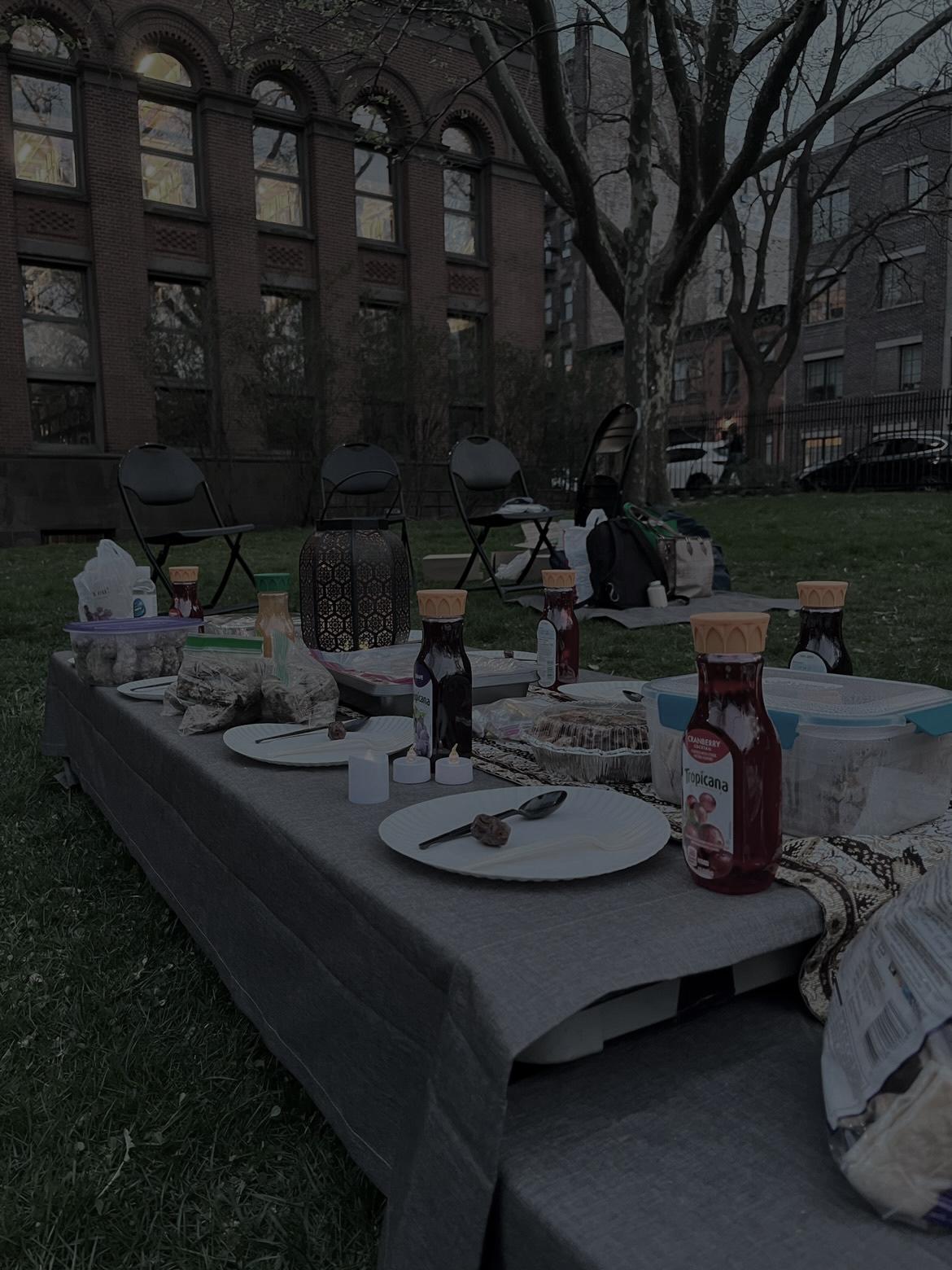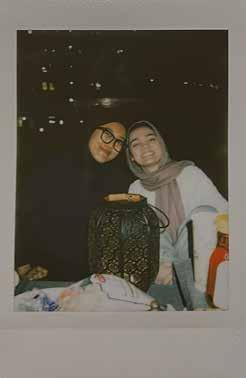
2 minute read
BEER & PIZZA
from Fig&Olive RA23 Issue
by Fig & Olive
Nafhan Nurul Qodri shares the unusual experience of Ramadan in the United States and how an Iftar with her friends drinking beer across from her at the table, initiated the culture shock that was Ramadan in America.

Advertisement
WRITTEN BY: SADDQA BAHIDRAH
Ramadan is a sacred month of reflection, fasting, and spiritual renewal for Muslims around the world. It is a time of unity, community, and cherished traditions. However, for some individuals, the experience of Ramadan can be vastly different, taking them on a journey that feels distant and challenging. In this op-ed interview, we sit down with Nafhan Nurul Qodri, a student at Pratt Institute far from home, as she shares her unique perspective on Ramadan 2023.
As we delve into the conversation, Nafhan expresses a sense of detachment from the spirit of Ramadan. She describes her experience using three words: afar, different, and challenging. Being physically separated from her family for the second year in a row and immersed in a different culture adds to the distance she feels, both geographically and emotionally. Nafhan longs for the cherished traditions she left behind. She reminisces about the iftars and suhoor meals shared with her family, a time when loved ones gather to break their fasts and offer prayers together. These traditions hold a special place in her heart, and she misses the joy and togetherness they bring.
One of the most significant factors influencing Nafhan’s Ramadan experience is the overwhelming sense of loneliness. She vividly recalls her time in Indonesia, where she would visit bustling street markets filled with colorful dessert stalls. Sweet treats made with palm sugar were a delight during iftar. Moreover, she fondly remembers sharing iftar with friends, creating lasting memories and strengthening bonds. However, this Ramadan, Nafhan finds herself navigating the absence of these familiar faces, leaving her with a void that cannot be easily filled.
Coming to Pratt, Nafhan admits she initially felt isolated as she believed there were no fellow Muslims on campus. To her surprise, she stumbled upon the Muslim Student Association (MSA), a group that offered a sense of community and understanding during this holy month. It was here that she began to feel a connection, finding solace in the presence of others who shared her faith and values. Despite the challenges she faces, Nafhan expresses a profound sense of peace during Ramadan, regardless of her location. She reveals that no matter where she is, she has always managed to find herself living near a mosque. These spiritual sanctuaries have provided her with a place to pray and reflect, with fond memories of accompanying her mother for nightly taraweeh prayers. However, she admits that practicing Ramadan in the United States presents more difficulties than she ever anticipated.
Nafhan tells me about a particular incident that epitomizes the unconventional nature of her Ramadan experience. She recalled a time when, surrounded by her American friends indulging in pizza and beer, she found herself breaking her fast with a slice of pizza. It was an unorthodox combination, symbolizing the intersection of her faith and the diverse culture she currently resides in. This unexpected moment brought her closer to her friends, allowing for a deeper understanding of different perspectives.
We’ve taken the liberty to show what these three types of styles look like using our magazine’s name in arabic. Tein wa Zaytoon, meaning Fig&Olive.




